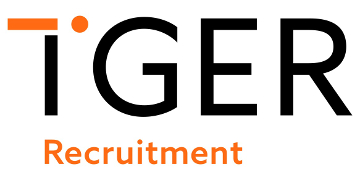The roundtable discussion centred around attracting, maintaining and supporting a diverse workforce, aiming to provide HR teams with the necessary tools to develop authentic and successful DEI strategies.
A recurring theme of the roundtable was the ability to deliver an ‘always-on’ strategy – specifically, how employers can ensure that their DEI activity is ongoing, instead of falling into the trap of performative activism (where it’s highlighted around certain events like Pride Month or Black History Month).
In today's dynamic business landscape, employers are increasingly recognising the impact of DEI initiatives on employee wellbeing, retention and talent attraction. Plenty of research shows that diverse companies outperform their competition, are more innovative and agile.
One recent study highlighted that diverse companies have a 2.5 times higher cash flow per employee, while a Harvard Business Review report demonstrated that diverse companies are 70% more likely to capture new markets.
Whilst many companies want to improve their DEI efforts, many are still stuck in the brainstorming phase, unsure where to start and unable to take impactful steps towards becoming more inclusive.
This was a common experience for the HR leaders at the roundtable, and the ensuing discussion shed light on actionable ideas to become more diverse, happier, and as a result - more productive.
Securing leadership buy-in
Securing leadership buy-in is crucial for creating and maintaining an inclusive workplace. Finding influential allies in the company that have sway with the leadership team is a good starting point.
Alongside this, HR teams can influence upper management by inviting DEI subject matter experts to discuss their experience.
Allowing leaders to be educated in the same space as employees can help provide backing, demonstrate leadership by example, and contribute to them signing off future DEI policies.
Additionally, HR teams can leverage focus groups and survey results to support their communication of the importance of inclusivity to staff and leaders. Data provides valuable insight into employees' perspectives and experiences, helping leadership teams to recognise the financial benefits that diverse teams bring to the organisation.
Highlighting the positive impact of inclusivity on employee engagement, productivity and innovation makes a compelling case for embracing diversity.
Accountable and authentic: hallmarks of a successful DEI strategy
Accountability is a crucial aspect of any successful DEI strategy. To avoid empty gestures, businesses must move beyond performative activism and implement tangible measures.
One effective step could involve the introduction of pay transparency policies, which not only promotes fairness but also attracts diverse talent.
A visible and well-communicated DEI strategy, both internally and externally, showcases the company's commitment to inclusivity. This transparent approach helps retain top talent and enhances the company's reputation as an employer of choice.
Creating an inclusive workplace requires authenticity when attracting and retaining diverse talent. While it's important to cast a wide net during the hiring process, it's equally crucial to prioritise competence over representation.
Avoiding quota-based hiring ensures that diversity efforts align with the goal of building a high-performing workforce.
A public DEI strategy is increasingly expected by jobseekers, particularly from the Gen Z demographic. HR can collaborate with communication teams to effectively disseminate the company's DEI steps and initiatives.
By showcasing a caring and inclusive employer brand, companies can attract top talent and foster a positive reputation among potential candidates.
Moving beyond preconceptions
Achieving inclusive workplaces requires HR teams to address the challenges of recruiting and retaining diverse talent. Conducting surveys and gathering feedback from employees helps companies gain insight into inclusivity perceptions and identify areas for improvement.
For example, businesses could consider the needs of introverted employees when designing the office space.
Creating spaces that cater to different work styles and preferences contributes to a more inclusive culture.
Many companies are hesitant about openly discussing diversity due to concerns about making mistakes or facing public backlash. Overcoming this obstacle requires a proactive approach to education and dialogue. For example, inviting external speakers to share their workplace experiences can help educate employees and leaders about the challenges and benefits of inclusivity.
Providing opportunities for employee feedback and opinions also fosters a culture of open communication and continuous improvement and helps employees to feel included and looked after.
Hiring strategies
During the hiring process, HR teams should be mindful of promoting fairness and diversity. This can include providing inclusive recruitment guidelines and training to interviewers, addressing unconscious bias, and ensuring that all candidates are given equal opportunities to showcase their skills and potential.
Additionally, partnering with external organisations like GAIN (Girls Are Investors) and 10,000 Black Interns allows companies to tap into underrepresented talent pools and align their recruitment efforts with broader diversity initiatives.
Specialised job boards and networks focused on specific demographics, such as Women in Tech, offer avenues to access diverse talent that might otherwise be overlooked.
Another route could include recruiting from a broader range of universities. Minimising education bias will foster diversity of thought and innovation within the organisation.
Conclusion
Embracing DEI offers employers a strategic advantage. The ideas at Tiger Recruitment’s roundtable, voiced by HR leaders, offer practical strategies for HR teams to navigate the DEI landscape successfully.
By securing leadership buy-in, promoting accountability, creating an inclusive workplace, and adopting effective recruitment practices, companies can harness the power of diversity, cultivate an engaged workforce, and drive sustainable business growth.
To learn more about how your HR team can embrace DEI, request your copy of Inclusive Workplaces: DEI Strategies for HR teams in 2023 here.
Nicola Watson is head of HR recruitment at Tiger Recruitment


